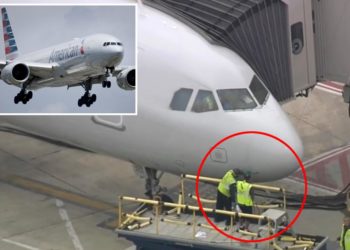Rhodell, West Virginia — For as long as Roman Patsey of Raleigh County, West Virginia, remembers, the Appalachian Mountains have provided virtually everything he’s needed to survive, from his income as a coal miner, to his tap water.
“I don’t know if it’s safe or not to tell you the truth,” Patsey told CBS News of his tap water source. “But, you know, what are you going to do? You’ve got to drink water.”
He took CBS News to his only source of drinking water for nearly 50 years: an abandoned coal mine near his home. Like so many here, he dug his own trenches and laid his own water lines hundreds of feet up a mountainside.
He says no part of him wondered why access to water should be this difficult.
“No, I just accepted it,” Patsey said. “It was something you had to do. I worried about running out of water, really, for years.”
He said he has never conducted regular tests on the water for possible contaminants.
About 250,000 West Virginia residents rely on untreated sources of water, like natural springs or aquifers from coal mines, according to the Environmental Protection Agency.
The median income in this area is around $30,000 per year, according to U.S. Census data, a far cry from the prosperity that the coal industry once created.
Coal companies used to fund and operate many town water systems in rural West Virginia. But when the industry declined, so did the water infrastructure it used to maintain. Patsey wanted to see this firsthand. So he, with a CBS News crew in tow, went to a water treatment plant in nearby Kimball, a town of more than 300 people in McDowell County. The plant’s windows are boarded up, the roof is completely missing, and there is rusted metal. Yet, this facility is supposed to clean tap water for the entire community.
Just 20 minutes up the road in Rhodell, a community in Raleigh County, the water treatment plant is also crumbling, with rust covering the pipes and a ceiling that is caved in.
“It’s in pretty bad shape as you can see,” said Shane Bragg with the Raleigh County Public Service District. “The fear is what you can’t see underground and what’s in the mines. We have no way of accessing the pumps in the mines, so when they go, the town will lose water.”
Raleigh County is racing to replace water systems before that happens with help from the nonprofit DigDeep, which works to bring clean tap water to the more than 2.2 million Americans who it says are living without it.
“We’re dealing with a lot of systems that are very expensive to maintain,” said Travis Foreman, director of DigDeep’s Appalachia Water Project. “And the local public service districts, they don’t have the manpower to keep up.”
In Rhodell, DigDeep is bringing clean water to the community for the first time in 10 years.
“It is a human right to have access to water,” Foreman said. “…Everyone deserves to have that access.”
For Patsey, it’s a source of hope straight from the tap.
“Not long ago at 4 o’clock in the morning, I turned this on like this, not a drop,” Patsey said while standing at his kitchen sink. “It’s such a peace knowing I’m going to have water here.”
Tom Hanson is a national investigative correspondent for CBS News and Stations. His in-depth reports air across all platforms and programs. He is a member of CBS News and Stations Medical, Health, and Wellness Unit.
The post Why thousands of people in rural West Virginia lack reliable drinking water appeared first on CBS News.




